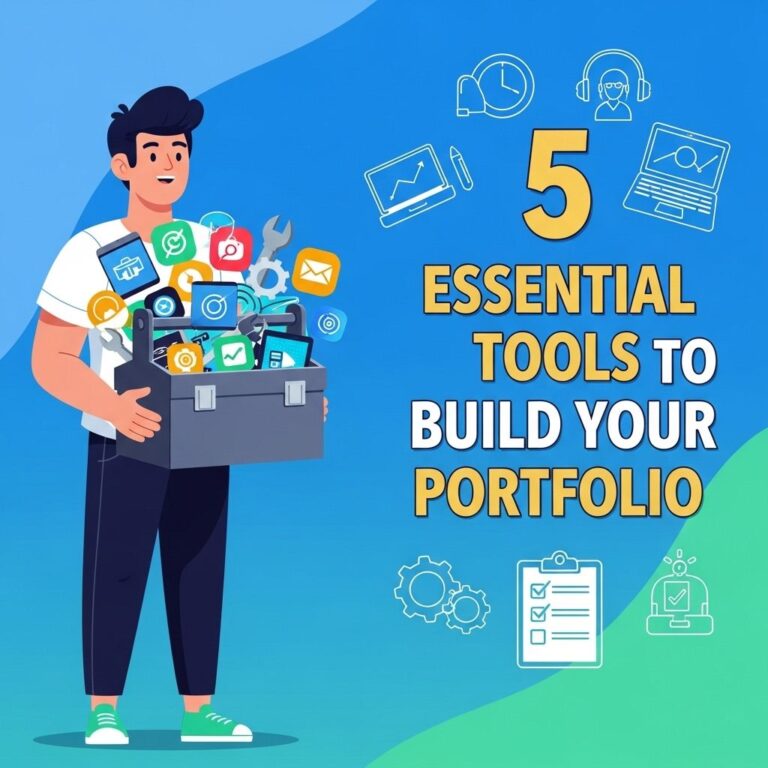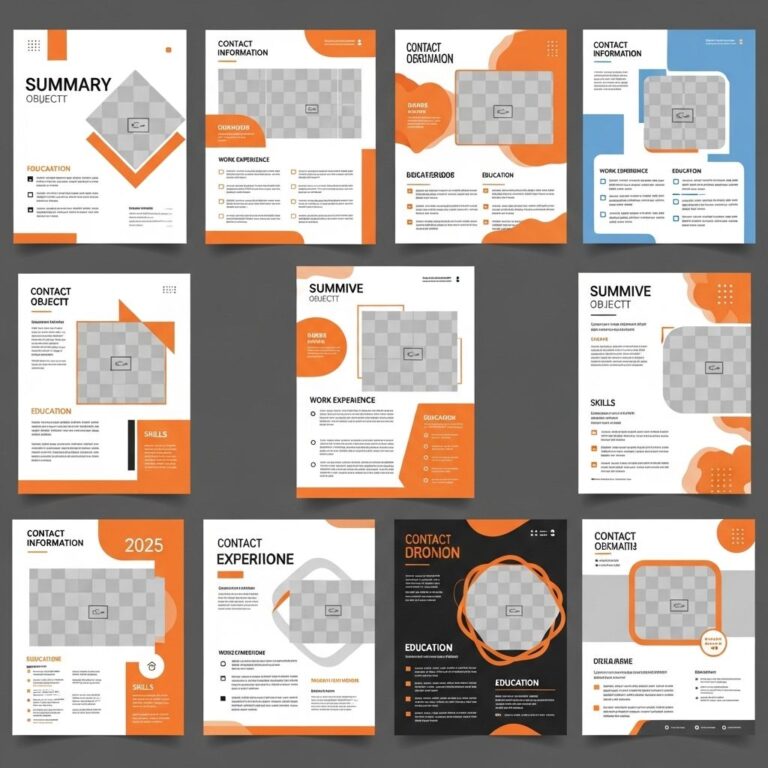Table of Contents
Introduction
In today’s fast-paced digital world, having a strong online presence is essential for career advancement. As we move into 2025, the significance of a personal website as an extension of your resume cannot be overstated. This digital footprint not only showcases your skills and experiences, but it also differentiates you from the competition. In this article, we will explore the key elements of designing a personal website that enhances your professional persona and elevates your career prospects.
In today’s digital landscape, having a personal website can significantly elevate your career by showcasing your skills and projects to potential employers. A well-designed website not only reflects your professionalism but also provides a unique platform to express your personal brand and creativity. To help you get started, consider utilizing free box mockups download that can enhance your site’s visual appeal.
Why a Personal Website?
In the contemporary job market, traditional resumes are often insufficient. A personal website allows for a dynamic presentation of your work, offering employers a deeper insight into your capabilities. Here are some compelling reasons to create a personal website:
- Showcase Your Work: Display your projects, case studies, and achievements in a visually appealing manner.
- Control Your Narrative: Present your career journey in a way that highlights your strengths and values.
- SEO Advantages: Increase your visibility in search engines, making it easier for recruiters to find you.
- Professional Image: A well-crafted website conveys professionalism and dedication to your field.
Essential Elements of a Personal Website
When designing your personal website, it’s crucial to include certain elements that will effectively communicate your professional story. Here’s a breakdown of essential components:
1. A Compelling Homepage
Your homepage serves as the first impression visitors will have of you. It should be visually appealing and quickly convey who you are. Consider including:
- A professional photo
- A brief introduction or tagline
- Links to your most important works
2. An About Me Section
This section should provide a narrative of your professional journey, including:
- Your educational background
- Your key skills and areas of expertise
- Any unique personal anecdotes that relate to your profession
3. Portfolio of Work
Your portfolio is the heart of your personal website. It should include:
- Samples of your work: Projects, case studies, or any relevant work products
- Detailed descriptions: Explain your role and the impact of the work
- Links to live projects, if applicable
4. Resume/CV Page
While your entire resume may not be necessary, including a downloadable PDF version of your resume is beneficial. This page should include:
- Your work experience organized chronologically
- Your educational history
- Technical skills and certifications
5. Blog or Articles Section
Creating a blog can establish you as a thought leader in your field. Consider writing about:
- Industry trends
- Project experiences
- Skills and tools relevant to your profession
6. Contact Information
Make it easy for visitors to contact you by including a dedicated contact page with:
- A contact form
- Your email address
- Links to social media profiles
Design Tips for Your Personal Website
Beyond content, design plays a critical role in the effectiveness of your personal website. Here are some tips to keep in mind:
1. Keep It Simple
Opt for a clean, straightforward design that focuses on your content. Avoid clutter that could distract from your message.
2. Choose the Right Color Scheme
Your color palette should reflect your personal brand. Consider:
- Three to five complementary colors
- High contrast for readability
3. Typography Matters
Select fonts that are easy to read on all devices. Use:
- A legible font for body text
- A more stylistic font for headings
4. Optimize for Mobile
With an increasing number of users accessing websites on mobile devices, ensure your site is responsive and user-friendly on all screen sizes.
5. Use High-Quality Images
Utilize high-resolution images for your portfolio, and ensure they load quickly to enhance user experience.
Promoting Your Personal Website
Creating your personal website is only the first step. Here are strategies to promote it effectively:
1. Leverage Social Media
Share your website link across your professional social media accounts to reach a wider audience.
2. Utilize Networking Opportunities
Include your website URL on business cards and email signatures for easy access.
3. Engage with Online Communities
Participate in forums and communities related to your industry, linking back to your website when relevant.
4. SEO Optimization
Incorporate relevant keywords throughout your site to improve visibility in search engines. Consider:
- Creating a blog with keyword-rich posts
- Focusing on local SEO if you are seeking local opportunities
Conclusion
As we approach 2025, the need for a personal website is becoming increasingly paramount for professionals across all industries. By thoughtfully designing your personal site to highlight your skills, experiences, and personality, you can create an online presence that not only reflects your career aspirations but also propels you towards your professional goals. Start building your personal website today, and take the first step in elevating your career.
FAQ
Why should I create a personal website for my resume?
A personal website allows you to showcase your skills, experience, and portfolio in a visually appealing way, making you stand out to potential employers.
What are the key elements to include in my personal website?
Key elements include an updated resume, a portfolio of your work, a professional biography, contact information, and links to your social media profiles.
How can a personal website enhance my job search in 2025?
In 2025, a personal website can enhance your job search by providing a platform for potential employers to easily access your qualifications and see your personality and creativity.
Is it necessary to hire a professional web designer for my personal site?
While hiring a professional can enhance the design and functionality, there are many user-friendly platforms available that allow you to create an effective personal website on your own.
How often should I update my personal website?
You should update your personal website regularly, ideally whenever you gain new skills, complete a project, or change jobs to keep it current and relevant.
What are the benefits of having a personal domain name for my website?
Having a personal domain name adds professionalism and credibility to your website, making it easier for employers to remember and access your online presence.









